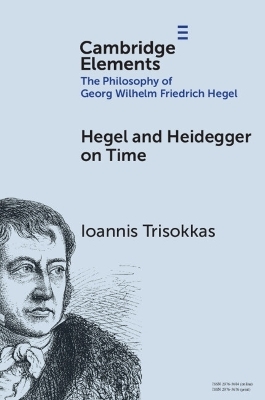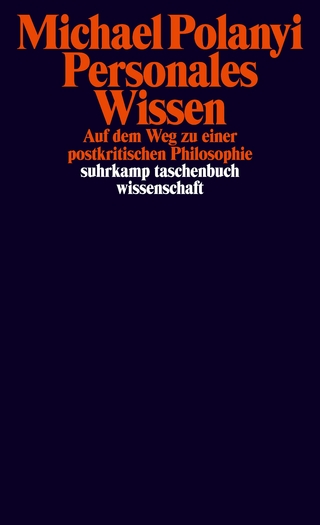
Hegel and Heidegger on Time
Seiten
2025
Cambridge University Press (Verlag)
978-1-009-58185-1 (ISBN)
Cambridge University Press (Verlag)
978-1-009-58185-1 (ISBN)
- Noch nicht erschienen (ca. März 2025)
- Portofrei ab CHF 40
- Auch auf Rechnung
- Artikel merken
This Element discusses Heidegger's early (1924–1931) reading and critique of Hegel, revolving around the topic of time. The standard view is Heidegger distances himself from Hegel by arguing that whereas he takes time to be 'originarily' Dasein's 'temporality,' Hegel has a 'vulgar' conception of time as 'now-time' (the succession of formal nows).
This Element discusses Heidegger's early (1924–1931) reading and critique of Hegel, which revolve around the topic of time. The standard view is that Heidegger distances himself from Hegel by arguing that whereas he takes time to be 'originarily' Dasein's 'temporality,' Hegel has a 'vulgar' conception of time as 'now-time' (the succession of formal nows). The Element defends the thesis that while this difference concerning the nature of time is certainly a part of Heidegger's 'confrontation' with Hegel, it is not its kernel. What Heidegger aspired to convey with his Hegel-critique is that they have a divergent conception of man's understanding of being (ontology). Whereas Heidegger takes ontology to be grounded in temporality, Hegel thinks it is grounded in 'the concept,' which has a dimension ('logos') manifesting eternity or timelessness. It is argued, contra Kojève, that Heidegger's reading (but not necessarily his critique) of Hegel is, in an important respect, correct.
This Element discusses Heidegger's early (1924–1931) reading and critique of Hegel, which revolve around the topic of time. The standard view is that Heidegger distances himself from Hegel by arguing that whereas he takes time to be 'originarily' Dasein's 'temporality,' Hegel has a 'vulgar' conception of time as 'now-time' (the succession of formal nows). The Element defends the thesis that while this difference concerning the nature of time is certainly a part of Heidegger's 'confrontation' with Hegel, it is not its kernel. What Heidegger aspired to convey with his Hegel-critique is that they have a divergent conception of man's understanding of being (ontology). Whereas Heidegger takes ontology to be grounded in temporality, Hegel thinks it is grounded in 'the concept,' which has a dimension ('logos') manifesting eternity or timelessness. It is argued, contra Kojève, that Heidegger's reading (but not necessarily his critique) of Hegel is, in an important respect, correct.
Introduction; 1. Heidegger on Time; 2. Heidegger's Reading and Critique of Hegel; 3. Hegel on Time and the Concept; Conclusion.
| Erscheint lt. Verlag | 31.3.2025 |
|---|---|
| Reihe/Serie | Elements in the Philosophy of Georg Wilhelm Friedrich Hegel |
| Zusatzinfo | Worked examples or Exercises |
| Verlagsort | Cambridge |
| Sprache | englisch |
| Themenwelt | Geisteswissenschaften ► Philosophie ► Metaphysik / Ontologie |
| ISBN-10 | 1-009-58185-6 / 1009581856 |
| ISBN-13 | 978-1-009-58185-1 / 9781009581851 |
| Zustand | Neuware |
| Informationen gemäß Produktsicherheitsverordnung (GPSR) | |
| Haben Sie eine Frage zum Produkt? |
Mehr entdecken
aus dem Bereich
aus dem Bereich
eine philosophische Reise
Buch | Softcover (2024)
Goldmann (Verlag)
CHF 19,55
Auf dem Weg zu einer postkritischen Philosophie
Buch | Softcover (2023)
Suhrkamp (Verlag)
CHF 53,20


